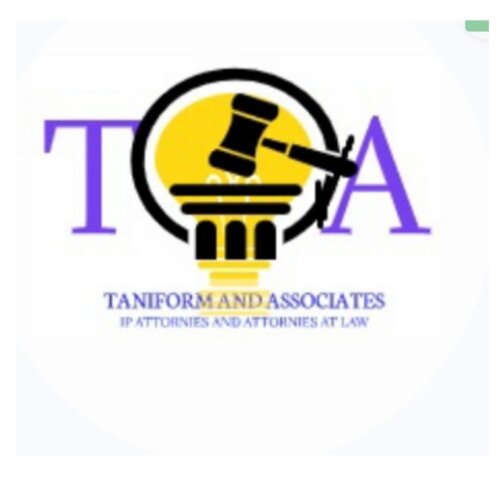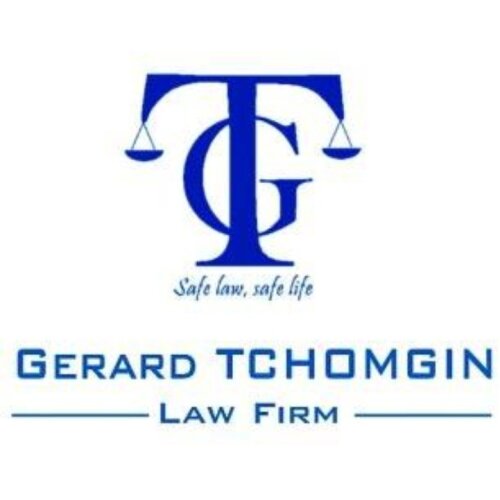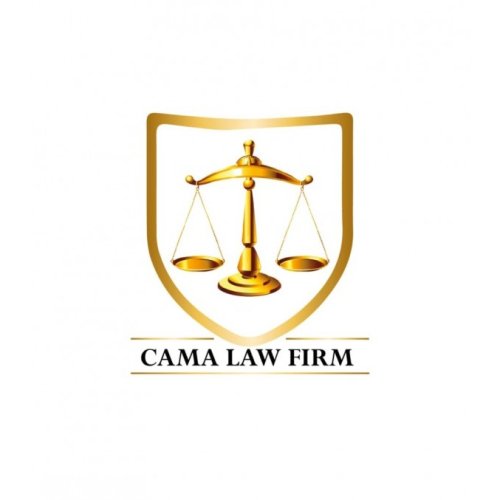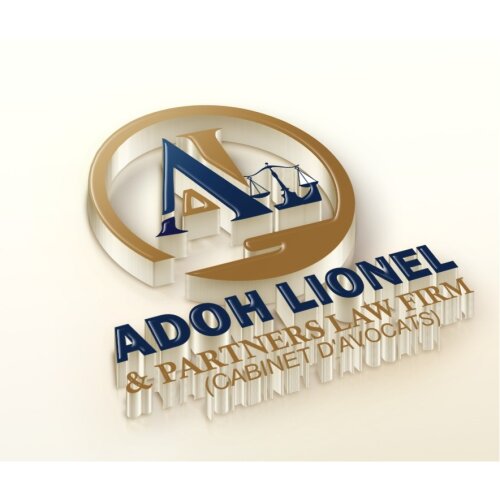Best Sanctions & Export Controls Lawyers in Cameroon
Share your needs with us, get contacted by law firms.
Free. Takes 2 min.
Or refine your search by selecting a city:
List of the best lawyers in Cameroon

Taniform and Associates IP Attorneys and Attorneys at Law
15 minutes Free ConsultationLegal guides written by CHI & Partners Law Firm:
- Ship Registration in Cameroon
About Sanctions & Export Controls Law in Cameroon
Sanctions and export controls are an important area of legal regulation in Cameroon. These laws are designed to manage and oversee the movement of goods, technologies, and services across the country's borders to ensure national security, comply with international obligations, and protect economic interests. In Cameroon, sanctions may be imposed in accordance with both domestic legislation and international commitments, such as United Nations Security Council resolutions and regional frameworks set by the African Union and the Central African Economic and Monetary Community (CEMAC). Export controls, on the other hand, regulate the exportation of specific commodities, dual-use items, and sensitive technologies that could impact security or violate international sanctions regimes. Companies and individuals involved in international trade need to be aware of these regulations to avoid legal risks and penalties.
Why You May Need a Lawyer
There are several situations where seeking legal help regarding sanctions and export controls in Cameroon becomes essential. If you are an importer, exporter, logistics provider, financial institution, or involved in international transactions, you may face complex compliance requirements. Legal assistance can help in:
- Ensuring your business activities are compliant with the latest sanctions and export control laws
- Advising on licensing or authorization requirements for certain goods or sensitive items
- Responding to enforcement actions, investigations, seizures, or fines related to alleged violations
- Understanding the impact of international sanctions on partners, suppliers, or customers
- Updating contracts and internal policies to reflect current legal obligations
- Responding to requests for information from government authorities
- Defending against criminal or civil liability in case of alleged unlawful exports or dealings with sanctioned entities
If you are unsure about whether your products, transactions, or business partnerships could trigger sanctions or export control issues, consulting a legal professional is highly recommended.
Local Laws Overview
Cameroon has a regulatory structure for sanctions and export controls that draws on domestic, regional, and international sources of law. Key elements include:
- National Legislation: Cameroon has laws and decrees regulating the export and import of arms, dual-use goods, and certain technologies. This includes the requirement for licenses or permits issued by relevant ministries such as the Ministry of Trade or Ministry of Defense.
- CEMAC and Regional Rules: As a CEMAC member, Cameroon enforces certain regional controls on currency movement and cross-border trade in sensitive products.
- International Sanctions: Cameroon implements United Nations Security Council sanctions, prohibiting dealings with listed persons, organizations, or countries. The country also takes into account sanctions regimes of other global entities where relevant.
- Customs and Border Controls: The Cameroon Customs Service actively enforces regulations at border posts and seaports by checking documentation, permits, and compliance with import and export restrictions.
- Special Sectors: Trade in arms, minerals, chemicals, pharmaceuticals, wildlife, and endangered species is subject to additional scrutiny and specific regulations under national and international arrangements like CITES.
Failure to comply can result in penalties such as fines, confiscation of goods, loss of licenses, and even criminal charges. Frequent changes and updates in international policies also mean that businesses must stay informed and up to date.
Frequently Asked Questions
What are export controls and who must comply with them in Cameroon?
Export controls are laws and regulations that restrict or regulate the export of certain goods, technology, and services for reasons including national security and compliance with international agreements. Anyone involved in exporting such items from Cameroon must comply, including individuals, businesses, and government agencies.
What types of goods are commonly subject to export controls in Cameroon?
Goods often subject to controls include weapons, military equipment, dual-use items (which can serve civilian and military purposes), certain chemicals, advanced technologies, minerals, and endangered wildlife species.
What are sanctions and how do they affect businesses in Cameroon?
Sanctions are restrictive measures, such as bans or embargoes, imposed on specific countries, persons, or entities. Sanctions in Cameroon can restrict trade, financial transactions, or other business activities involving targeted parties.
How do I know if a product I want to export is restricted or needs a license?
You should consult the relevant government authorities, such as the Ministry of Trade or the Cameroon Customs Service, to determine if your product falls under restricted categories and to check if it requires a special license or permit.
What happens if I violate export control laws in Cameroon?
Violating export controls can result in penalties including fines, seizure of goods, suspension or revocation of trade licenses, and in serious cases, criminal prosecution.
Are there specific sanctions enforced in Cameroon that are not established by the UN?
While Cameroon primarily enforces international sanctions, particularly those adopted by the United Nations, it may also apply regional or national restrictive measures depending on security and policy considerations.
What is dual-use technology and why is it controlled?
Dual-use technology refers to items that have both civilian and military applications. These are controlled to prevent their misuse for activities like weapons proliferation or terrorism.
Can I request exemptions or waivers from export controls or sanctions?
Exemptions or special licenses may be available under certain circumstances, but they require proper application to and approval by the relevant authorities, which may include providing detailed justifications.
What role do customs officials play in enforcing sanctions and export controls?
Customs officials conduct inspections at exit and entry points, verify documentation, and ensure that shipments are compliant with all applicable laws and sanctions measures.
How can I keep updated on changes to sanctions and export control rules in Cameroon?
Regularly monitoring updates from government ministries, customs offices, and industry associations will help you stay informed. Consulting a legal professional is advisable for updates that may directly impact your operations.
Additional Resources
If you require more information or official guidance, consider reaching out to the following organizations and government bodies in Cameroon:
- Ministry of Trade (Ministère du Commerce)
- General Directorate of Customs (Direction Générale des Douanes)
- Ministry of External Relations (Ministère des Relations Extérieures)
- CEMAC regional office (for regional trade and monetary guidelines)
- UN Country Office in Cameroon (for information on international sanctions)
- Industry and trade associations involved in import and export activities
- Licensed law firms or legal practitioners with experience in international trade and compliance issues
Next Steps
If you believe your business or personal activities may involve sanctions or export control issues in Cameroon, consider these steps:
- Collect all relevant information on your intended business activities, including products, countries involved, and parties to the transactions
- Contact the relevant government ministry or the Cameroon Customs Service for up-to-date legal requirements and processes
- Consult a lawyer experienced in sanctions and export control matters in Cameroon to assess compliance risks and guide you through the process
- Implement internal policies and training to ensure ongoing compliance within your organization
- Stay updated on changes in law and policy, locally and internationally, that could affect your operations
Taking proactive legal advice will help reduce your risks and ensure that your business remains fully compliant with Cameroon’s sanctions and export control framework.
Lawzana helps you find the best lawyers and law firms in Cameroon through a curated and pre-screened list of qualified legal professionals. Our platform offers rankings and detailed profiles of attorneys and law firms, allowing you to compare based on practice areas, including Sanctions & Export Controls, experience, and client feedback.
Each profile includes a description of the firm's areas of practice, client reviews, team members and partners, year of establishment, spoken languages, office locations, contact information, social media presence, and any published articles or resources. Most firms on our platform speak English and are experienced in both local and international legal matters.
Get a quote from top-rated law firms in Cameroon — quickly, securely, and without unnecessary hassle.
Disclaimer:
The information provided on this page is for general informational purposes only and does not constitute legal advice. While we strive to ensure the accuracy and relevance of the content, legal information may change over time, and interpretations of the law can vary. You should always consult with a qualified legal professional for advice specific to your situation.
We disclaim all liability for actions taken or not taken based on the content of this page. If you believe any information is incorrect or outdated, please contact us, and we will review and update it where appropriate.
Browse sanctions & export controls law firms by city in Cameroon
Refine your search by selecting a city.
















